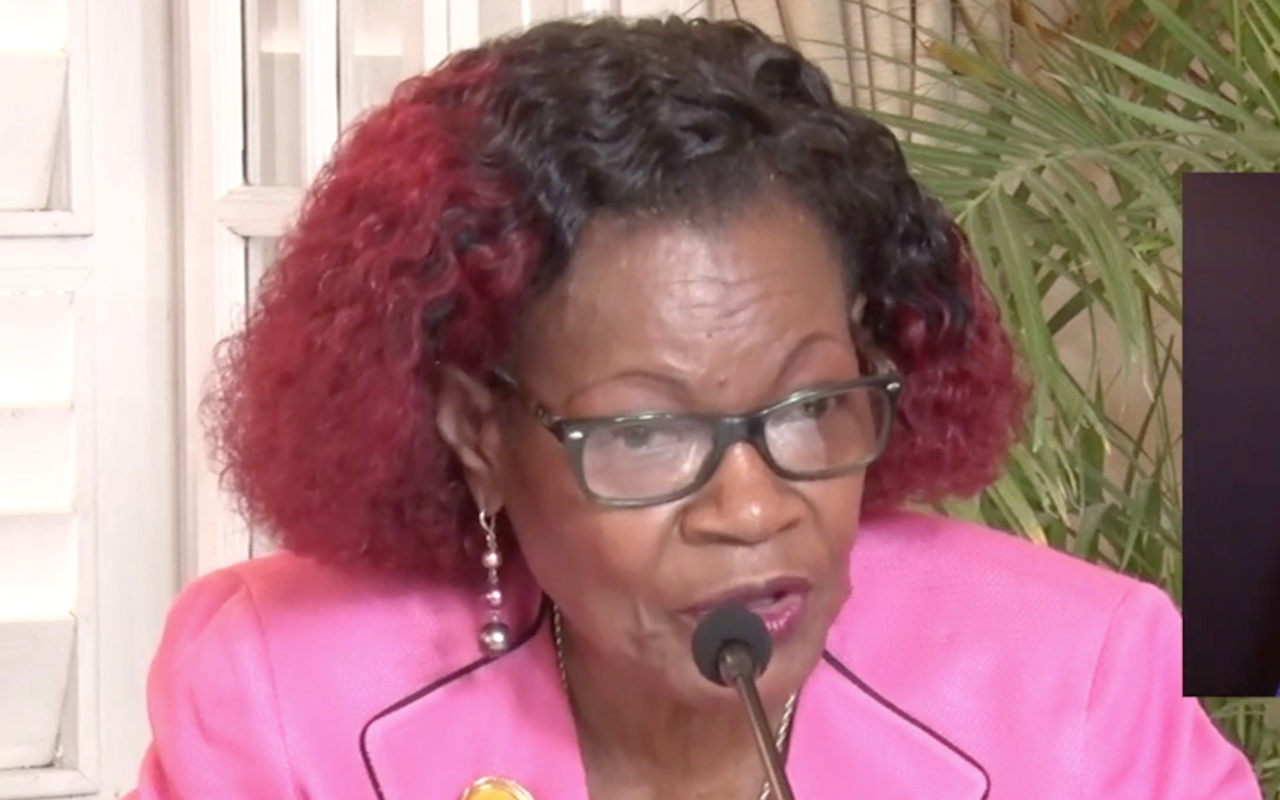Sweeping reforms are once again said to be on the horizon for stakeholders in education which promise significant changes to primary and secondary curriculum and the re-engagement of disenchanted students.
There is, however, still no definitive word on when the controversial common entrance examination will be abolished, despite an admission from Minister of Education Technological and Vocational Training Santia Bradshaw that the annual assessment has outlived its usefulness.
Director of Education Reform Dr Idamay Denny on Wednesday announced plans for remediation programmes to target students displaying academic weakness during the transition from primary to secondary school. In specific secondary schools, the remediation in literacy and numeracy would be accompanied by core subjects like social studies, science, physical education, and health and family life education.
“You have people traipsing around school everyday, totally disengaged from what is happening. We also need to put programming in place to address the needs of those children. Those are critical children who belong to this community and if we don’t address their needs it is going to come back to haunt us at some time in the future,” Dr Denny contended.
“So we are going to give them a smaller programme that is going to have a focus on literacy and numeracy and it is going to be implemented in all schools where the performance of the students allocated to those schools reflect the major deficits,” she added.
This, Dr Denny explained, would be followed by specific applied and alternative programmes to recapture the engagement of the young learners whose needs are currently not being met.
“These programmes are going to be applied in nature. They are going to allow the students to use their hands to demonstrate, to use the skills that they have and target the interest that they have through this applied programming. The principals are going to undertake service to determine what the interests of the children are and then there will be modifications to the instructional programme to target those applied programmes which are more likely to engage the students,” the education reform director added.
The initiative will require the appointment of “remedial coordinators” in some schools to work in collaboration with year heads, the Ministry of Education and the Erdiston Teachers Training College to develop the necessary content. In fact, she revealed that the Frederick Smith Secondary School has been identified as one such institution where programmes will be rolled out as a potential blueprint for others to follow.
When asked if the reforms were the beginning of the process for abolishing the Common Entrance Exam, Minister Bradshaw declared that her main objective at this stage is to return a measure of “relevance” to schooling in Barbados.
“I think there is a feeling generally that the Common Entrance has in many ways outlived its purpose, not just as an exit examination but certainly as a means of making students feel as though they are not worth their salt, and from where I sit, I see the fallout of many students who fall through the cracks as a result of the pressure that our students are placed under,” said Bradshaw.
Adding that many of the social ills are the result of disengagement in the school environment, Bradshaw noted that in many cases, it is “easier” to teach students about guns on the street.
“Why? Because it is being done in a visual way, a way that they are familiar with. It is being done in a way where it sounds exciting… Whereas in the classroom environment, if we are not meeting children where they are, then we are failing them,” Bradshaw contended.
“Therefore, the numeracy and literacy that is the foundation of everything that a child will do, whether it’s an artist, whether it’s a creative, whether it’s an athlete, having that basic understanding and knowledge content, is something that we have to put in our schools so that at least they have the foundation upon which they can then go on to explore other areas,” the Minister added.
According to Dr Denny, a former Chief Education Officer, at the more advanced secondary level, the approval and creation of a National Qualifications and Credit Framework is key to ensuring that Caribbean Vocational Qualifications (CVQ) are accepted in workplaces and institutions of higher education.
She added that at the primary level, students with specific deficits would benefit from the work of a committee from among the ministry, Erdiston, teachers, principals, parents and private schools who will be assembling to develop curriculum to meet their needs.
The education official added that the Erdiston training college will be delivering a series of short courses to prepare educators for the coming changes, which will be followed with continuous monitoring. (KS)




